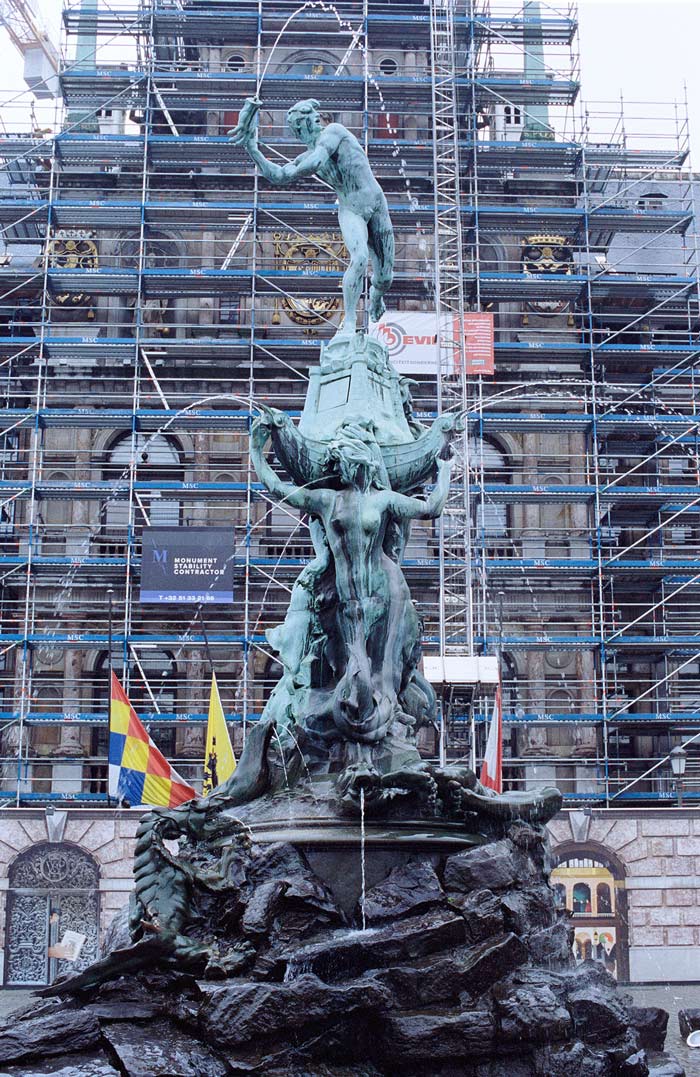
Opinion
Why tearing down statues is tackling Britain’s racist history
By Tommy Hodgson
Opinion
Why tearing down statues is tackling Britain’s racist history
By Tommy Hodgson
Published Jul 9, 2020 at 02:35 PM
Reading time: 3 minutes
Global politics
Jul 9, 2020
Britain has always had an uneasy relationship with its colonial past, and by virtue of that, with the concepts of racism and state violence. In the debate about whether taking down statues of known slave owners harms our understanding of history, Boris Johnson strongly signalled which side of the culture war he backs by defiantly stating “We can’t photoshop our history.” This speaks to a fundamental misunderstanding of the role that statues play in society, but also to the way the British state has historically ‘photoshopped’ its own brutal colonial legacy.
Statues have not generally been erected to educate the populace about the people they commemorate; rather, they serve as a tribute to them. As historian David Olusoga put it, statues often deal with “adoration” as opposed to education. Statues in the UK of British figures from the colonial period make little reference to the treatment or fate of native populations around the world. They are also often erected long after the era in which events took place, and so the ‘historic value’ of these statues is not even reflective of the figure’s own time period; if anything, they tell us more about the society which chose to put them up.
Monuments that do not reference the brutality of empire or the individuals’ role in colonialism are not reflecting real history, and their erection is more of an effort to erase history and enforce a myth of British benevolence. Tearing down statues is not in fact an ahistorical act, but an attempt to correct the record.
This brings us to the state censoring its own history. The aptly named Operation Legacy was a British governmental programme which spanned the period of decolonisation from the 1950s to the 1970s. As more and more countries in Africa, Asia and the Caribbean pushed for independence, the Colonial Office (now known as the Foreign Office) found it necessary to obscure and hide what the British had actually done while they wielded power in these countries. The authorities in London instructed British officials in the colonies to destroy any documents which “might embarrass Her Majesty’s government”, such as documents that displayed racist behaviour or details of the violence often inflicted on different colonies.
It is estimated that over 8,000 documents were burned or dumped in the ocean to prevent residents of Kenya, Uganda, Malaysia, Singapore, Belize and other countries from seeing the conduct of their colonial rulers. This destruction of official documents had strict instructions to be carried out covertly, to avoid repeating the scandal that British officials endured when they were caught burning documents during India’s independence in 1947.
Declassified files have since revealed the scale of Operation Legacy, which covered up British-led torture of locals, as well as the scale of massacres and detention camps run by British authorities during the Mau Mau uprising in Kenya.
The British state has already ‘photoshopped’ its legacy for decades, and was quite clear in what it was doing at the time. Naming the whole process Operation Legacy reveals the state’s interests in preserving a paternalistic, wholly positive understanding of the British Empire achieved by quite literally destroying its racist and problematic aspects. This erasure of history has been reinforced by a lack of education about the British Empire in schools.
The instructions given to local officers during Operation Legacy are also revelatory, as they explicitly forbade African involvement; only “British subject[s] of European descent” could participate. Therein lies the facade of the entire narrative of the Empire, the lie that it was beneficial to the people it controlled, that it was empowering to locals and a collaborative decision. Legacy has ironically shown us where the real betrayal of history occurred in our past and, indeed, into our present.
When Johnson talks of the dangers of retroactively altering British history, he only means it in ways that damage the created image of Britain as a noble do-gooder in an uncivilised world. He does not concern himself with actions that the British state has historically pursued which fundamentally reveal the reality of the British Empire: subjugation of local populations, exploitation of natural resources, rule by terror and intimidation, and brutal suppression of any challenge to total British control of these regions.
When Britain finally confronts its ugly legacy, the statues of slave owners and unabashed racists—which do not commemorate history but rather stand as political statements that deliberately counter reality—will fall. In its place will not be a photoshop, but something more tangible: an acknowledgement of the world we live in and how we can change it, starting with the truth.




